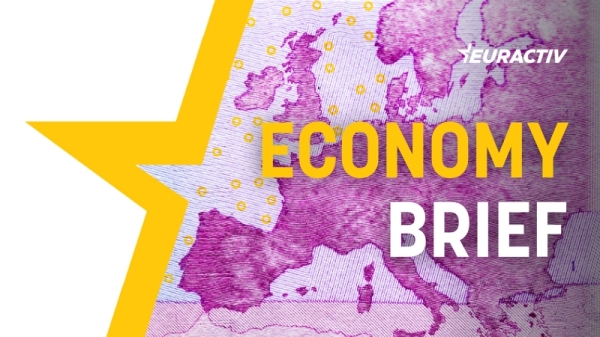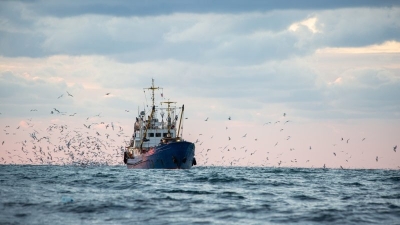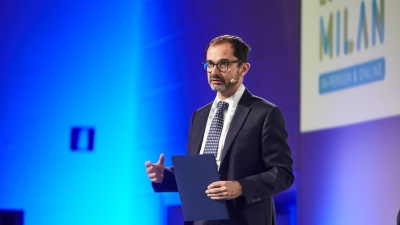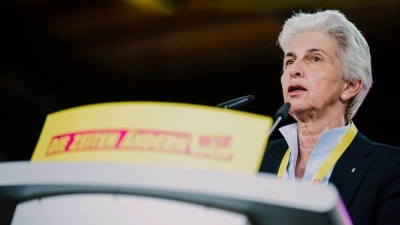Economics is a tribal discipline, and Lagarde now wants to be part of the club

Last month, European Central Bank president Christine Lagarde — a lawyer by training — vehemently condemned economists for constituting a “tribal clique” who have “blind faith” in their economic models.
Yesterday (15 February), Lagarde enthusiastically declared her desire to join the clique.
“My aspiration is to become a member of the tribe as well, one day,” Lagarde told the European Parliament’s Committee on Economic and Monetary Affairs. “And I have huge respect for those who are members. And I value their work everyday. And I couldn’t do without them.”
The reasons for Lagarde’s U-turn are not difficult to discern: her original comments caused a vicious backlash from many professional economists — including, reportedly, from inside the ECB itself.
The more interesting issue, however, is the validity of Lagarde’s core assumption. Namely: Is economics ultimately a tribal profession? And, to the extent that it is, is this a problem?
Quantum squabbles
That many economists profess a fervent loyalty to their profession — or, more typically, to a particular subfield or school of thought (e.g. Keynesian, Marxian, etc.) — is unquestionable.
However, this fact alone cannot be taken to disqualify economics as a legitimate discipline. Indeed, an ideological attachment to a particular school of thought (or “tribe”) is a key feature of some of the greatest minds, and theories, in scientific history.
Albert Einstein, for instance, was convinced that quantum mechanics was false because he believed that instantaneous distant causal interaction (“spooky action at a distance”) was impossible.
Such beliefs may be ultimately more philosophical than they are empirical. Moreover, to this day, their ultimate truth has not been determined by quantum theorists: “Bohmians”, for instance, believe in action at a distance; “Everettians”, on the other hand, do not.
A benign crisis?
During these shifts, the scientific debate hinges on ideological questions just as much as on empirical ones – and scientists do indeed get philosophical.
“Only when they must choose between competing theories do scientists behave like philosophers,” he later wrote.
Indeed, the repeated inaccuracy of economists’ projections is the main reason why the discipline is experiencing a deepening sense of crisis.
As we reported yesterday, more than 200 economists have signed an open letter urging the European Commission to “diversify” its forecasting models so as to include the lessons and principles of the burgeoning subdiscipline of “ecological economics”
They further argued that, by incorporating such models into their analyses, the European Commission would “significantly enhance” its forecasting abilities.
The claim is, in part, empirical: it is a testable fact whether incorporating such models will improve the Commission’s forecasting abilities.
But it is also partly philosophical, as it also questions the neutrality of the scientific models currently serving as the basis for EU economic forecasts – and therefore, crucially, for key policy-making decisions.
In doing so, it raises a host of broader, more high-level questions. What metrics should economists measure? And how should they measure them?
It is worth recalling that Einstein and Bohr’s quasi-philosophical debates in the early decades of last century were similarly triggered by the “crisis” faced by classical physics — specifically, its empirical inadequacy. Their discussions ultimately led to the birth of quantum physics: one of the most successful theories in human history, in terms of predictive ability.
“Given [Lagarde’s] position as the ECB president, it would have been more helpful if she backed up her criticism of navel-gazing in economics with concrete measures,” he told Euractiv. “For example, by hiring geopolitical experts or more climate and energy experts to enrich the ECB’s macro-economic modelling.”
As another Nobel Prize-winning physicist, Richard Feynman, once put it: “If it disagrees with experiment, it is wrong. In that simple statement is the key to science.”
Chart of the Week
As a 200-economists army challenged the economic models used by the EU Commission for its forecasts and policy discussions as incomplete and outdated, calling for a better integration of environmental factors, let’s see how climate-related events have impacted European economies in recent years.
The graph shows economic losses recently incurred by the 27-member bloc, and by its five largest economies in particular, as a consequence of climate-related events and drivers.
Economic News Roundup
More than 200 economists call on the European Commission to overhaul the way it calculates its economic forecasts, in an open letter obtained exclusively by Euractiv. The letter, backed by world-leading economists including Mariana Mazzucato, Steve Keen, Jason Hickel, and Kate Raworth and overseen by the Greens/EFA European Parliamentary group, warns that models currently relied upon by the Commission for crucial forecasts and policy discussions risk failing to factor in the most pressing challenges that real-world 21st-century economies are facing. Read more.
The European Commission cuts its growth outlook for both Europe and the eurozone. GDP for the 27-member bloc is now expected to grow 0.9% in 2024, down from a 1.3% projection in the previous Commission forecast, while eurozone countries are seen posting a 0.8% increase, down from the previous 1.2% forecast. Germany, the bloc’s largest economy and industrial engine, had its growth forecast cut from 0.8% to 0.3%. “It’s obvious that the business model on which [Germany] has developed its economy needs to be revamped and probably restructured,” Lagarde told MEPs on the European Parliament’s Economic Committee on Thursday. Read more.
The co-president of the Greens/EFA European parliamentary group, Philippe Lamberts, rebukes warnings by the head of Belgium’s central bank that the green transition will make Europe poorer. “If we start saying that basically we cannot afford to invest for [our own] survival then I believe that we need to have a discussion with more serious people,” Lamberts told Euractiv. “[That] Europe should engage full-on in the green transition to me cannot be questioned. It’s a matter of environmental and economic survival.” Read more.
Experts claim the EU’s new fiscal rules will hamper the bloc’s ability to make critical investments in green technology and defence industries. Sebastian Mang, a senior policy officer at UK-based think tank New Economics Foundation, criticised the agreement for “focusing on debt reduction through cutting spending” rather than via growth and investment, as originally envisaged by the European Commission. “[The new rules] are economically short-sighted because we can’t advance towards our objectives,” he said. “We can’t mitigate against climate change sufficiently. We can’t invest sufficiently. We can’t invest towards political concerns like defence and industrial policy and economic autonomy. And that’s going to make for a weaker Europe.” Read more.
German liberals want to renegotiate EU due diligence law, blame Spain. Germany’s liberal FDP party wants to reopen negotiations on the EU’s Due Diligence Directive after the issue was removed from the agenda of a meeting of EU ambassadors last Friday, which the party says shows the poor quality of the preliminary agreement reached in December. “I think it’s an absolute disgrace that it’s becoming more and more widespread, especially at the end of a Council presidency; that it’s all about PR success and a handshake photo so that political issues are always left open,” said Svenja Hahn, an EU lawmaker of the FDP. Read more.
Germany’s CDU wants to call the shots on the economy early. The German conservatives have urged Chancellor Olaf Scholz to adopt a list of 12 measures they hope will address the country’s economic problems, including getting rid of the EU’s corporate sustainability due diligence directive. The call came ahead of a statement by German Economy Minister Robert Habeck (Greens), who said on Wednesday (14 February) that the economic outlook for the country was “dramatically bad”, with a growth of only 0.2% being expected for the course of the year.
Literature corner
There are lessons from Russia’s GDP growth — but not the ones Putin thinks
Germany’s Days as an Industrial Superpower Are Coming to an End
Ukraine Needs $486 Billion to Recover, Rebuild After Nearly Two Years of War – World Bank
Read more with Euractiv




